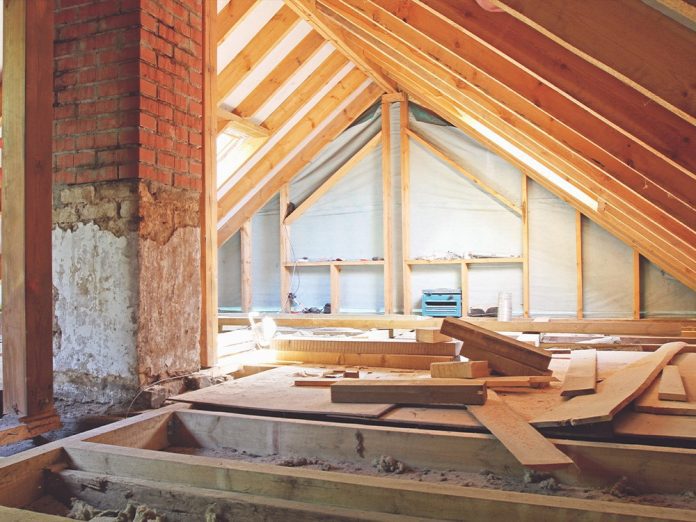Profitable property renovations come in many forms, from light cosmetics, adding an upstairs bathroom, to heavy refurbishments, extensions and structural changes. Big renovations may increase the value of an investment property, but choosing the right level of renovation that’s appropriate to the specific property in question is essential, and that makes the difference between profit and loss – as any expert quantity surveyor in Melbourne will tell you.
As Stephen Clark, from Finbri Bridging Finance explains, “Renovations typically add value to a property, especially when they’re appropriately considered, but can also be risky if it’s a first-time developer as they’ll likely not have the experience to avoid some common mis-steps.”
It’s necessary to understand what style of renovation works best for any given property, the appropriate budget to allocate, and the appropriate purchase and sale price from the venture. All of these elements will impact the overall profitability of the project.
Here you’ll find a few simple tips to help your next renovation project turn a profit.
Budget correctly
When it comes to budgeting, it’s tempting to think spending money on the ‘cosmetic’ aspects such as the kitchen, the bathroom, and the decorating will make the property appear newer, thus adding value. However, a valuer will see straight through the superficial details and look at the property’s condition.
For this reason, it’s important, especially with a limited budget, to ensure you spend the most money on the essentials, ensuring the building is secure, warm and damp-free. General maintenance work on the roof and any underpinning or stabilisation work is essential and should take precedence over cosmetic renovation.
Buy a dilapidated property in a great location
Sometimes buying the worst house in a great location can be the difference between making a small profit and a healthy one. Most people will usually look for the best houses in an area, however those properties aren’t usually worth purchasing to make a profit as there isn’t much room for improvement. However, if you buy the worst house on the best road you can afford, you are much more likely to add value.
A property in poor condition will likely turn off many people, so the price should reflect that. As an individual renovator, you can’t influence an area or change the street, but you can completely transform the property and, if necessary, completely rebuild it.
Because the majority of the profit is made in the purchase rather than what you do with it, the price you pay is critical. You want to buy a property that has potential that others haven’t seen yet, so you don’t have to pay a premium for it. Unless you purchase a large property, the possible profit margin will likely be narrow, so you must exercise caution.
Install central heating
Adding or updating a central heating system will add more value to a property than it costs. Most buyers and mortgage lenders consider it essential and will set a renovator or property developer back around £3000-£4000 to complete.
Updating the heating system will also improve the building’s overall energy efficiency rating, which can be advantageous to potential buyers as energy prices are rapidly rising.
Sealing cracks around doors and windows (but not airbricks) to prevent draughts, replacing broken windows with double glazing, and insulating the loft space can also help improve energy efficiency. With upcoming rules about minimum efficiency ratings for rental properties likely to impact landlords, a new boiler isn’t just enticing for home-owners but landlords too.
Making use of the existing space
After you’ve taken care of the fundamentals of fixing the house and ensuring that it’s structurally warm, dry, and damp-proof, you can concentrate on making the best use of your space.
Before making dramatic renovations, it’s always best to consider the following:
- Can you make better use of the space inside the property than is currently being utilised? Better use of the existing space could be a cheaper way to add value to the house.
- Is there extra space such as a loft, cellar or garage that could be converted into an extra bedroom, for example? An extra bedroom could add 11.2% to the value of a property, while a loft conversion could add 10.8%.
- Can the property be extended upwards? Extending up is always less expensive than extending out and saves garden space.
- Can the property be extended outwards? If an upward extension is impossible, consider extending out into the garden or on the sides of the property.
- Can the property be extended downwards? If you can’t extend upwards or outwards, you could consider building a basement. However, this is expensive and will only make sense if you live in a high-value area like London or the southeast.
- Can you add an outbuilding? If nothing else works, an outbuilding at the bottom of the garden can usually add extra space and subsequently more value.
Speaking to Louise Lever, a residential property renovator, she explains, “Spotting what other would-be investors miss, makes the difference between making a bit of profit or a lot.
“For example, my current project is an end-of-terrace with double garages at the back leading onto another road. Most local developers have looked at this opportunity but passed it up because the property is already priced with that development of the garages in mind.
“The end of terrace however, also has 5 metres of land adjacent to the house which would allow for a new end of terrace to be built, only if it were for planning approval. Under permitted development I’m able to build a two storey extension that’s in keeping with the current property on that land. With one internal door connecting the properties together and with them sharing the same services, I’ve effectively achieved a new dwelling that will pass planning. Because I’ve laid new separate services to the new property ready for it becoming its own dwelling at minimal extra cost, future planning permission permitting, I’ll then be able to split the two properties up and sell the new property as a separate dwelling. Even if I can’t do that, I’ll be able to rent the new property as the local rental market is buoyant.
“Another spin on this development is that the planning requirements for the development of the garages are prohibitive as I have to carve up more garden than I’d hoped for and that will devalue the current property – which I really don’t want to do. However, as soon as I have finished the development on the garages and split the title deeds, without issue I can decide to sell part of the garden back to the original property that I also own, effectively overcoming the planning requirement. This is only workable because I haven’t mortgaged the property. If I had then there’s a bit more red tape as I would require consent from the lender to change the title deeds.
“It’s this creative problem solving that eeks out every last bit of profit potential from developing or renovating residential properties.
Repair minor flaws
Minor flaws have no direct impact on a property’s value, but they can prevent the property from being sold at the best possible price.
The following are common flaws that turn off many buyers but are easily fixed by any competent DIYer:
- Peeling paint
- Doors and windows that squeak or stick
- Non-functioning door latches
- Mouldy kitchen and bathroom sealants
- Dripping taps
- Loose tiles
- Sewer odours
- Windows that are broken or damaged
- Floors and stairs that squeak
- Ceiling and plasterwork cracks
- Taking up flooring
Keep in mind the ‘Ceiling Value.’
Remember that there is a ‘ceiling value,’ or the highest value that any property can achieve, so you can’t just keep adding space. At some point during the renovation process, you will spend money you will never get back.
But with the correct research, planning and budgeting, renovations can result in significant profit.
Disclaimer: This article contains sponsored marketing content. It is intended for promotional purposes and should not be considered as an endorsement or recommendation by our website. Readers are encouraged to conduct their own research and exercise their own judgment before making any decisions based on the information provided in this article.































